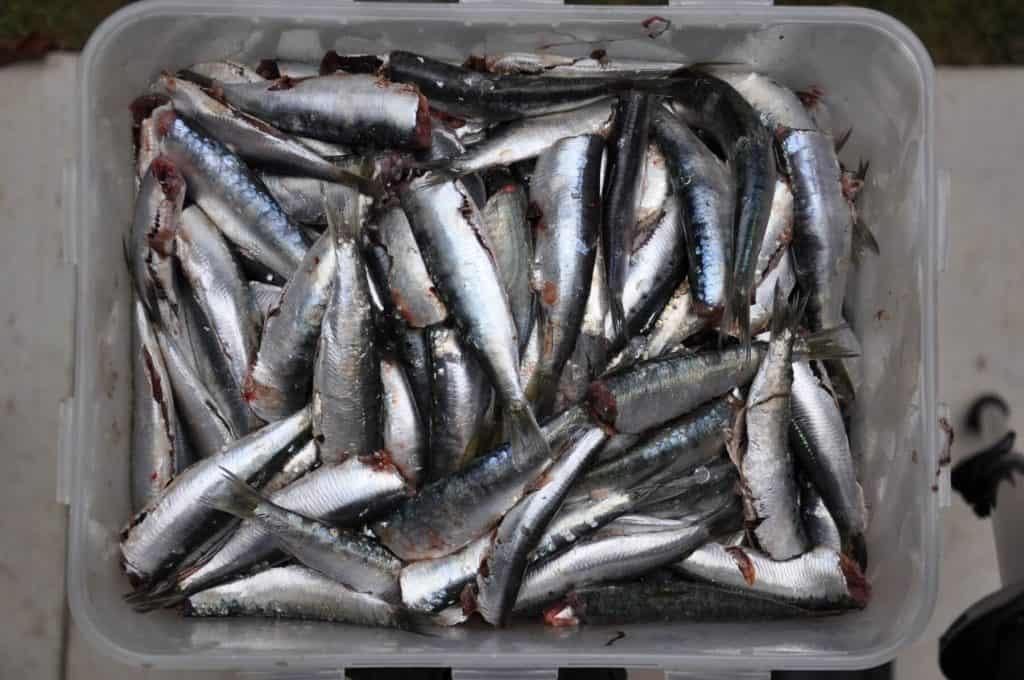Freezing food is a great way to save time in the kitchen. In fact, it can cut your kitchen prep time in half. But can you freeze fish that has already been seasoned or marinaded?
Freezing fish after seasoning is a safe way to prep fish dishes ahead of time. Adding the seasoning or marinade beforehand doesn’t negatively affect the taste of the fish, and can actually enhance the flavor since the meat has time to soak up all the herbs the seasoning has to offer.
Can you freeze fish with seasoning or dry rub
Tuna and other lean fish pair well with dry rubs and seasonings containing garlic powder, thyme, dried basile, and oregano.
While seasonings and dry rubs with sage, dill, rosemary, basil, parsley, bay leaves, fennel, cilantro, and thyme work best for fatty fish, such as salmon.
All of these herbs can be applied to the fish first before placing in the freezer. Keep in mind, however, that it isn’t uncommon for some of the seasoning to come off while in the freezer, and you may have to apply more seasoning once you remove the fish from the freezer and unthaw it.
Furthermore, certain herbs, such as garlic, can actually increase their flavor when frozen and become the most dominant flavor in the seasoning. If you are worried about the garlic overpowering the other seasonings, simply reduce the amount of garlic in the dry rub recipe before applying it to the fish.
ESSENTIAL TOOLS AND EQUIPMENT FOR FREEZING FOOD
Last update on 2024-06-26 / Affiliate links / Images from Amazon Product Advertising API
How to freeze fish with dry rub or seasoning
Whether you have salmon or tuna, both can be safely frozen after applying dry rub or seasoning. Make sure you rub the fish with olive oil before rubbing the dry rub or seasoning over the entire surface area of the fish.
To freeze the seasoned fish, wrap each fish filet tightly in plastic wrap. Avoid wrapping multiple filets together. Place the wrapped filets in a ziplock freezer bag.
Use your hand to push out as much air as possible before securing the bag close. If you have access to a vacuum sealer, use that instead of the ziplock bag. Make sure to write the date on each bag. This helps alert you of when the fish was frozen.
Fatty fish can last up to three months in the freezer, while leaner fish can last up to six months. If the fish is properly sealed in a vacuum-sealed bag, it can last up to two years.
Can you freeze marinated fish
While you can freeze fish that has been marinated, it is not recommended to freeze the fish with their marinade. This can lead to acids in the marinades combing with the damage caused by naturally forming ice crystals to create mushy fish.
A better option would be to marinade the fish for at least 30 minutes and then remove the marinaded fish from the liquid before freezing. Or you can freeze the fish and its marinade separately and then, when ready to cook, let the fish soak in the marinade for 30 minutes.
No matter which way you choose, make sure to place the fish in an airtight ziplock bag or vacuum sealed bag before placing it in the freezer. Furthermore, ensure that the bag and fish is laid down flat in the freezer to prevent the marinade from dripping off the fish and down into the bag.
Can all fish be frozen with dry rub, seasoning or marinate

The short answer is yes, you can apply dry rub, seasoning, and marinade to all types of fish (tuna, salmon, trout, cod, mackerel, sardines, haddock, flounder, haring) before you place it in the freezer.
It may, however, slightly affect the texture of the fish.
You can also dry rub, season or marinate fish fillets, steaks and whole fish.
Cod, salmon, trout or tuna usually come in fillets or steaks and are an excellent option for freezer food prep.
Whole fish, such as mackerel, haring, or bass, are usually frozen whole. Appling dry rub, seasoning, or marinade on whole fish is not as common. But if you do, I suggest you only apply salt.
For example, allowing the fish to sit in the marinade for too long can turn the fish soggy, while seasonings containing garlic can increase in potency when stored in the freezer. Another thing to consider is that the way you freeze the fish may change depending on whether you are marinating or seasoning the fish.
Ice glazing is a common method of freezing fish, and it requires dipping the fish in salted water before allowing it to freeze. This method cannot be used with fish that has been dry rubbed, seasoned, or marinated since it can wash off the seasoning. Instead, you will need to wrap the fish in plastic wrap and then place it in a ziplock or vacuumed-sealed bag before storing it in the freezer.
Conclusion
Seasoning fish before storing in the freezer isn’t much different than seasoning it after thawing. The dry rub, seasoning, and marinade can still enhance the flavor of the fish even after being frozen. Just make sure the fish is sealed tightly in a ziplock or vacuum-sealed bag before storing it in the freezer.







